How does the inside of your brain look like? If you’re staring at your desk or your shelves right now and things are looking a bit stuffed up, chances are, what’s going on inside could feel the same: disorganized, cluttered and overwhelmed by stuff and thoughts.
Just like those piles of paper and dishes add up around us, we collect a lot within our brains each day.
As well as the physical clutter around, our frequent interactions with technology and the never-ending mental to-do lists create an invisible ball of tangled threads inside our brain.
We find ourselves stressed and unable to focus clearly or make decisions. Instead of looking within and using holistic methods to clear the brain, we often turn to comfort foods or alcohol to help us relax and unwind.
Does that sound familiar?
The truth is that clearing the mind is a continual effort, and consistency is key in maintaining a certain level of tidiness up there. In order to clear up the cobwebs and do some soul searching, you need to do some serious decluttering and compartmentalising of the brain.
Here are ten steps you can take to find your inner zen (and keep it that way!).
https://happybodyformula.com/wp-content/uploads/2017/01/10-ways-to-declutter-your-mind-548×1024.jpg
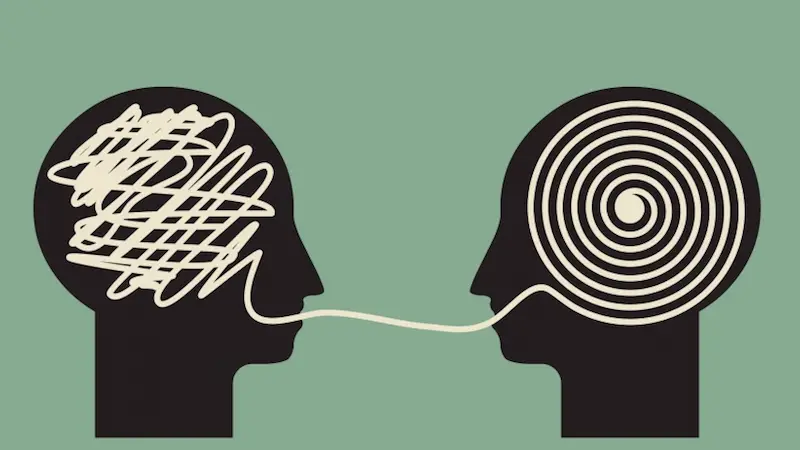
1. Clean up your physical space
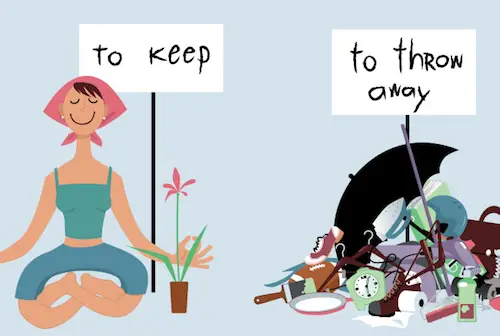
There’s no doubt that physical clutter contributes to mental and emotional clutter. If you’re constantly catching a glimpse of disarray out of the corner of your eye, it could be impacting your brain in bigger ways than you think.
In fact, it’s sort of perpetual: you’re going to experience a spike in stress – even if it’s small – only to feel more stressed by the duty of having to address it.
Do it little by little. Work on your problem areas or the space you spend the most time in. At least create a clean and organized space to gather yourself and de-stress each day.
Don’t just limit yourself to decluttering your physical surroundings, though. Your email inbox and social media could probably use some spring cleaning too!
We think it’s so important for the mind that the 9-week Happy Body Formula program has an entire week dedicated to the act of decluttering with step-by-step tasks for each day.
2. Start a journal
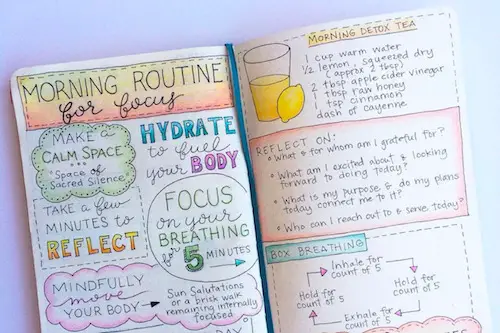
We are huge fans of journaling at Happy Body Formula. The list of proven benefits to writing things down is a long one, and a less cluttered mind overall is one of the most convincing arguments.
It’s something that’s accessible to everyone, and there are no hard and fast rules to it. All it takes is a notebook and a pen.
Bullet journaling is a great way to get started. It includes lots of list-making and short-chain thoughts. This can be helpful to those who feel intimidated by beginning a journal, especially those who don’t consider themselves writers.
You can keep track of to-do lists, social obligations, calendars, food, exercise and sleep logs and so much more. Once you start making lists, it gets addictive!
This is one of the simplest and most effective ways to visualize what’s swirling around in your head. Moreover, once it’s on paper, it might not feel so overwhelming.
3. Get outside

The outdoors are therapeutic for many reasons. First and foremost, we tend to spend most of our time inside. If you think about it, you might just realize how little time you spend outside.
The bulk of time many people spend outside is due to function. For example, walking to and from the train station or jogging the dog.
Instead, think about implementing more intentional outdoors time into your life if you feel the clutter in your mind is building up. If you want to double up on “cleaning duties,” get some exercise while you’re out there.
Running outdoors, hiking, climbing, kayaking and the like are great activities that can help you relax and gain perspective while you break a sweat and release those happy brain chemicals.
Being immersed in massive landscapes has a great ability to make our problems feel a little smaller and bit more manageable, while a nature walk can help us focus on other things (i.e. direction, bird sounds, types of trees), and get us out of our heads.
4. Ditch the television
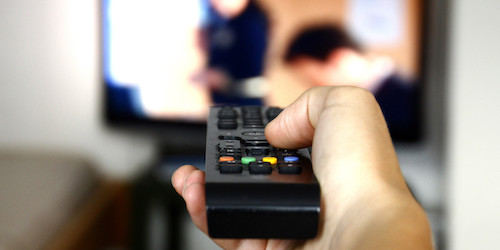
Television is a bit of a timesuck, although it’s a guilty pleasure amongst many people. With things like Netflix, it’s easier than ever to binge watch… and you know we’re not stopping at Season 1.
If you find yourself struggling to carve out the time for self-care or any of the other tips we list on our ‘declutter your mind’ checklist today, skipping out on your nightly television schedule could very well clear up an hour (or three!).
While television seems like a good way to settle the brain and wind down, it’s doing quite the opposite. You’re subjecting yourself to a constant influx of other people’s ideas, opinions and biases which inherently impacts our own ideas and thoughts.
It can be overwhelming, even if it’s just subconsciously so. If you’re not ready to ditch your TV, limiting media consumption including the websites you visit – is a good idea. This can be done by setting time boundaries, content boundaries or both.
5. Go minimalist
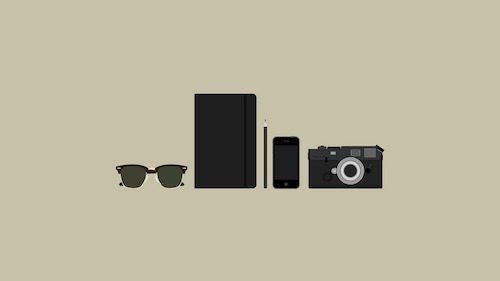
Half the battle in decluttering is keeping your head on autopilot. This means, your mind should remain at a tolerable level of clutter at all times, or ideally, very little clutter at all!
For some, this could mean paring down some. Think about the sheer amount of things we have to deal with and think about each day. What if you could just remove a few altogether, rather than trying to maneuver the stress of it?
It’s easy to get caught up in the notion that our happiness will increase as we collect more, but we’re of the belief that things actually work in quite the opposite way.
Minimalism entails thinking about what you really need and want. This forces you to ask yourself, “What is important?” Another good question to ask yourself is, “Do I have control over this?” or “Will this improve the quality of my life?”
Whether you’re addressing material objects or stray thoughts, this elimination process will do your brain some serious good. Plus, it will allow you to really dial in on what is essential and positive in your life.
6. Stop overbooking yourself

We live in a fast-paced society for the most part. We’re dominated by long and often unreasonable to-do lists on top of social obligations and y’know… breathing! We have a tendency to forget that we can say, “No” sometimes, so we happily oblige to everything only to realize we don’t have the time for half of it.
If you have a tendency to become anxious, just the anticipation of it all can stifle you and prevent you from doing as much as you could in the first place.
If you want to declutter your mind, vow to do a little less. Yes – we’re telling you that slacking off a little is okay because it is, especially if it means your sanity stands a chance.
Be realistic about what you need to do versus what you’d like to do, and set aside time for yourself above all. Sometimes, a shift in priority is all it takes. Even if you scale back, you’re not going to miss out on what’s really important to you.
7. Talk it out

This one might seem obvious, but many of us close ourselves off or hold back from what we’d like to say without even realizing it.
Moreover, we don’t realize the detrimental impact it has on our stress levels, our ability to handle said stress, or the negative ways in which it has potential to weaken relationships.
Talking to people allows us perspective as we can receive feedback that isn’t so clouded by our own brain junk. Verbalizing our thoughts and feelings can make things feel more manageable as we release ownership over our problems.
Another good reason to talk it out is that aspects of conversation like trust, vulnerability and empathy are good for us. Finally, it prevents the classic problem of bottling up everything inside, only for it to explode later.
Trust in your family or friends, and don’t be afraid to seek out a therapist you get along with if it means a less heavy head and heart.
8. Put others first

While it may seem counterintuitive at first, considering these tips are meant to help you really help yourself above all. Have you heard of the theory that good luck is brought on by hard work?
Helping others can be thought of in the same way: if you’re lacking in something, give what you do have to someone else. Whether or not you believe in karma, you can be sure that helping out others can give you some peace of mind.
It doesn’t have to be done in grand gestures. Simply smiling more often at others can help you feel better, and if giving what you don’t have much of to someone else means a smile… well, it’s worth it!
Helping others is a good way to enforce some motion, too; by practizing the “art” daily, you can break down the barriers that your mind might be creating between you and others, and it can help to cultivate compassion for everyone, including yourself!
9. Embrace your one-track mind

Naturally, when you’ve got a hefty workload to face whether it’s in the office or at home, the mind has big potential to get a little scared off at the thought of it!
Even if you’re the ‘to-do list master,’ nothing beats a clear and streamlined vision of where you’re going. You might consider yourself a skilled multitasker, but it could be creating some additional clutter.
Along with setting up a realistic list of tasks you’d like to complete, another decluttering skill would be to focus on one thing at a time. In the day and age of ultimate distraction (hello, technology!), it’s easy to end up without an clear and concrete goal.
While we’re trying to complete the task at hand, we’re still focusing on other tasks in the background.
10. Do nothing at all

Maybe it sounds like a controversial opinion, but it’s highly beneficial, especially if your brain is on serious overdrive. Sometimes, the best advice is to do nothing. Take a nap. Sit on the couch. Take a bath. Meditate.
Whatever it is, it might be worth it. If your mind is facing big clutter issues, trying to be productive can be very counterproductive.
Whether you just need a break or you’re looking to go into maintenance mode and schedule a low-impact day for yourself, doing nothing is valuable no matter what anyone else tells you.
It doesn’t have to be an entire day. Ten minutes, an hour or two, or a weekend are all good time periods to reset and restore.
What’s your key to balancing out your brain? We want to know! Share our tips if you enjoyed reading them. Happy Body Formula wishes you some peace and quiet!
Music, mountains, dogs, travel, food and friends.
